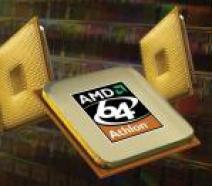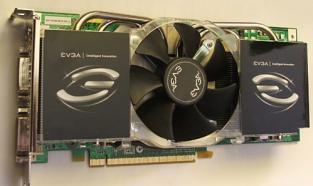OOPS! You forgot to upload swfobject.js ! You must upload this file for your form to work.
Daimler creating cars on hydrogen fuel cells
![]()
|
xtreview is your : Video card - cpu - memory - Hard drive - power supply unit source |
|
|||
|
|
||||
 Recommended : Free unlimited image hosting with image editor
Recommended : Free unlimited image hosting with image editor
|
POSTER: computer news || DAIMLER CREATING CARS ON HYDROGEN FUEL CELLS |
DATE:2017-04-04 |
|
|
German manufacturers paid enough attention to the development of cars on hydrogen fuel cells: Toyota collaborated with BMW , and Daimler proposed to create a unique rechargeable hybrid that uses only electric traction: conventional batteries had to coexist with hydrogen fuel cells. The resource of the latter was to be involved in long distances, and for short trips it was intended to use ordinary batteries, whose charge would be replenished from the power grid. Now the publication Smart2zero referring to the statements of the head of Daimler Dieter Zetsche ) reports that the German automaker is no longer going to pay much attention to the development of vehicles on hydrogen fuel cells, the priority will be given to the creation of electric vehicles, charged from the network. Previously, hydrogen fuel cells attracted Daimler because of the opportunity to overcome with their help more distance and quickly replenish the power reserve. Now, battery electric vehicles are gradually getting rid of their main shortcomings, steadily becoming cheaper, and the production of hydrogen on an industrial scale remains a very expensive pleasure. However, Daimler still intends to release a limited edition of Mercedes-Benz GLC crossovers on hydrogen fuel cells by the end of this year. It should be borne in mind that they will be operated by corporate customers, and will not enter the retail market. For many companies, buying such a transport is an image step. According to Dieter Zetsche, hydrogen fuel cells remain an "interesting technological solution," but they can be commercially successful only when a way to extract hydrogen with a minimal cost appears. | ||
|
|
||
|
xtreview is your : Video card - cpu - memory - Hard drive - power supply unit source |
|
|
|
|
||
|
Xtreview Support  N-Post:xxxx Xtreview Support        |
DAIMLER CREATING CARS ON HYDROGEN FUEL CELLS |
| Please Feel Free to write any Comment; Thanks  |
Apple is unlikely to say goodbye to the idea of creating a robotic car (2017-06-18)
Daimler creating cars on hydrogen fuel cells (2017-04-04)
Apple eyeing the idea of creating augmented reality glasses (2016-11-15)
Tim Cook once again flirting with the idea of creating a car (2016-02-23)
Apple CEO was skeptical about the idea of creating an iPhone with a large screen (2013-04-24)
![]()
To figure out your best laptops .Welcome to XTreview.com. Here u can find a complete computer hardware guide and laptop rating .More than 500 reviews of modern PC to understand the basic architecture


7600gt review
7600gt is the middle card range.
We already benchmarked this video card and found that ...

 geforce 8800gtx and 8800gts
geforce 8800gtx and 8800gts  Xtreview software download Section
Xtreview software download Section  AMD TURION 64 X2 REVIEW
AMD TURION 64 X2 REVIEW  INTEL PENTIUM D 920 , INTEL PENTIUM D 930
INTEL PENTIUM D 920 , INTEL PENTIUM D 930  6800XT REVIEW
6800XT REVIEW  computer hardware REVIEW
computer hardware REVIEW  INTEL CONROE CORE DUO 2 REVIEW VS AMD AM2
INTEL CONROE CORE DUO 2 REVIEW VS AMD AM2  INTEL PENTIUM D 805 INTEL D805
INTEL PENTIUM D 805 INTEL D805  Free desktop wallpaper
Free desktop wallpaper  online fighting game
online fighting game  Xtreview price comparison center
Xtreview price comparison center Lastest 15 Reviews


Rss Feeds
Last News
- The new version of GPU-Z finally kills the belief in the miracle of Vega transformation
- The motherboard manufacturer confirms the characteristics of the processors Coffee Lake
- We are looking for copper coolers on NVIDIA Volta computing accelerators
- Unofficially about Intels plans to release 300-series chipset
- The Japanese representation of AMD offered monetary compensation to the first buyers of Ryzen Threadripper
- This year will not be released more than 45 million motherboards
- TSMC denies the presentation of charges from the antimonopoly authorities
- Radeon RX Vega 64 at frequencies 1802-1000 MHz updated the record GPUPI 1B
- AMD itself would like to believe that mobile processors Ryzen have already been released
- AMD Vega 20 will find application in accelerating computations
- Pre-orders for new iPhone start next week
- Radeon RX Vega 57, 58 and 59: the wonders of transformation
- ASML starts commercial delivery of EUV-scanners
- The older Skylake processors with a free multiplier are removed from production
- Meizu will release Android-smartphone based on Helio P40
- AMD Bristol Ridge processors are also available in American retail
- The fate of Toshiba Memory can be solved to the next environment
- duo GeForce GTX 1080 Ti in GPUPI 1B at frequencies of 2480-10320 MHz
- New Kentsfield overclocking record up to 5204 MHz
- Lenovo released Android-smartphone K8

HALO 3 HALO 3 - Final Fight!

PREY Prey is something you don t often see anymore: a totally unigue shooter experience.

computer news computer parts review Old Forum Downloads New Forum Login Join Articles terms Hardware blog Sitemap Get Freebies


